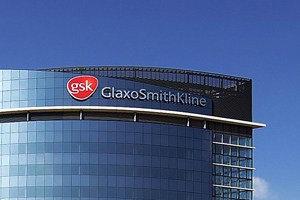
GlaxoSmithKline has penned a deal worth up to €955m with Bavarian Nordic, to offload its travel vaccines Rabipur and Encepur.
Rabipur is indicated for the prevention of rabies, while Encepur is a preventative treatment for tick-borne encephalitis.
Under the terms of the deal, GSK has received an upfront payment of €308m, and is eligible to receive milestone payments of up to €955m.
GSK said in a statement that the divestment of the two vaccines coincides with its “strategic intent to increase focus and reinvest in growth assets, innovation and a simplified supply chain in its vaccines business”.
 The move follows a major ongoing strategy refocus at the British pharma, after CEO Emma Walmsley (pictured left) spearheaded plans to reinvest in the company’s oncology business at the beginning of 2019.
The move follows a major ongoing strategy refocus at the British pharma, after CEO Emma Walmsley (pictured left) spearheaded plans to reinvest in the company’s oncology business at the beginning of 2019.
Since it bought out cancer specialist firm Tesaro at the end of 2018, gaining the rights to PARP inhibitor treatment Zejula in the process, GSK has steadily increased it stakes in the area.
This includes a deal with Merck & Co, agreed in Feburary 2019, for the joint development and commercialisation of M7824, a novel immunotherapy with potential in a number of difficult-to-treat cancers.
GSK’s other big hope in oncology is its BCMA antibody drug-conjugate GSK2857916, which is being studied in multiple myeloma and could reach market as early as 2020.
The revamp at GSK was needed in large part due to generic competition to its blockbuster respiratory treatment Advair. Analysts have also presented concerns that its HIV franchise could decline thanks to competition from rivals such as Gilead.
The two travel vaccines were acquired as part of a $20bn asset swap with Novartis back in 2015. As part of that deal, orchestrated by previous GSK CEO Sir Andrew Witty, all its marketed cancer treatments were handed over to Novartis.
 GSK can’t catch up with immunotherapy leaders, such as Merck & Co’s Keytruda and Bristol-Myers Squibb’s Opdivo, but its R&D chief Hal Barron (pictured right) has still maintained there are opportunities in developing the next-generation of therapies which will work in combination with these drugs.
GSK can’t catch up with immunotherapy leaders, such as Merck & Co’s Keytruda and Bristol-Myers Squibb’s Opdivo, but its R&D chief Hal Barron (pictured right) has still maintained there are opportunities in developing the next-generation of therapies which will work in combination with these drugs.
Barron has also indicated GSK’s interest in cell and gene therapies, which is another reversal on a previous strategy after the company sold its Strimvelis gene therapy in early 2018.




